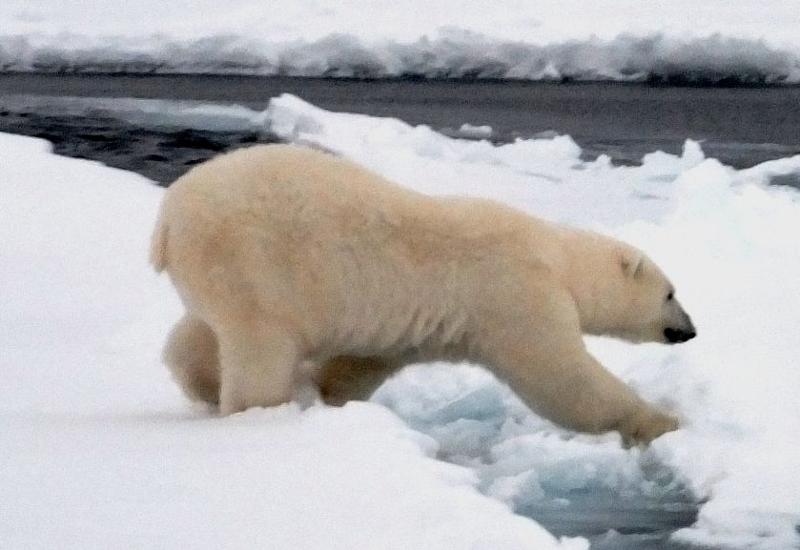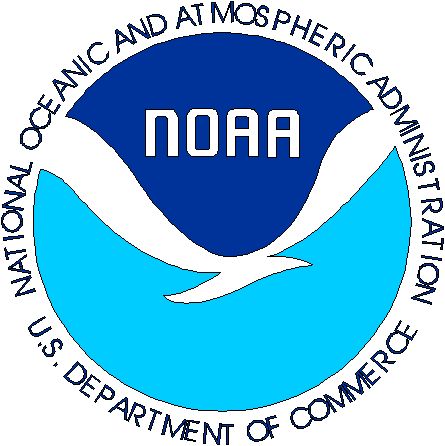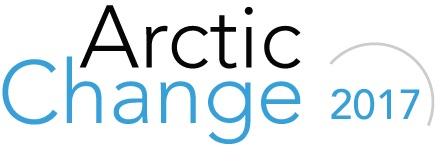|
|
|
|
|
|
|
|
No Arctic science events are scheduled today.
|
 Fulbright Arctic Initiative Accepting Applications Fulbright Arctic Initiative Accepting Applications The U.S. Department of State has announced the launch of the second Fulbright Arctic Initiative. Scholars and researchers from the eight Arctic Council countries can now apply for this 18-month collaborative research program, which will begin in spring 2018 and run through the fall of 2019. Established researchers, early-career specialists, and indigenous knowledge experts will join together to form a network of scholars to conduct research in one of two focus areas: Resilient Communities and Sustainable Economies. Scholars will be selected through an open, merit-based competition to participate in an individual Fulbright exchange and convene with the other scholars for three in-person group seminars and on-going virtual communication to carry out team-based research. For more information, visit the Fulbright Arctic Initiative website or contact us.
Study Finds Toxic Mercury is Accumulating in the Arctic Tundra. Vast amounts of toxic mercury are accumulating in the Arctic tundra, threatening the health and well-being of people, wildlife and waterways, according to a UMass Lowell scientist investigating the source of the pollution. A research team led by Prof. Daniel Obrist, chairman of UMass Lowell's Department of Environmental, Earth and Atmospheric Sciences, found that airborne mercury is gathering in the Arctic tundra, where it gets deposited in the soil and ultimately runs off into waters. Scientists have long reported high levels of mercury pollution in the Arctic. The new research identifies gaseous mercury as its major source and sheds light on how the element gets there. University of Massachusetts Lowell
 For Polar Bears, Melting Ice in the Arctic Means Less Room to Roam for Food. For Polar Bears, Melting Ice in the Arctic Means Less Room to Roam for Food. Buzz over the Chukchi Sea in a helicopter in early spring, and there's little to see but sky and ice. That is, until your eye catches the maze of polar bear tracks threading across the ice in some areas. The sea, which stretches between northwestern Alaska and northeastern Russia, is home to one of the Arctic's 19 Distinct Polar Bear Populations. "When you're out there and you see all these tracks - it feels like there's a bear party going on, and you just haven't been invited to it," says video producer Luke Groskin. He recently made the trip with Karyn Rode, a wildlife biologist at the US Geological Survey, to film her work with the bears for Science Friday. Public Radio International
Transport Canada's Arctic Drone Project Delayed 2 Years by Arms-Control Rules. Transport Canada's plan to patrol the Arctic with a drone has been delayed by at least two years, partly because the unmanned aircraft is so large it's considered a kind of missile and falls under complex arms-control rules. The $39.5-million project, approved June 2015, was supposed to see a drone flying patrols by March next year. But CBC News has learned the so-called UAV - unmanned aerial vehicle - won't be delivered until at least April 2020, or almost five years after the project got the green light. CBC News
[Canada] Chasing Winter: Coast Guard Prepares for Arctic Voyage. Crew members on board the Canadian Coast Guard Vessel, the Henry Larsen, are in St. John's harbour today, preparing to depart for Canada's north and beyond. The Canadian Coast Guard sends seven ships to the Arctic each summer with the primary function of keeping shipping lanes free of ice build up, so commercial traffic can keep moving. Captain Byron Briggs says in addition to ice breaking, the Henry Larsen will provide support to other government departments and outside agencies for scientific research. VOCM
 Saildrones Will Aide NOAA Research This Summer. Saildrones Will Aide NOAA Research This Summer. Federal fisheries scientists say they will launch unmanned ocean vehicles, called Saildrones, over the next four months from the Arctic to the tropical Pacific Ocean to learn more about how changes in the ocean are impacting fisheries and marine life. The wind and solar-powered research vehicles, which resemble sailboats, will be traveling thousands of miles across the ocean, reaching some areas never before surveyed with such specialized technology, NOAA Fisheries said July 11. In mid-July, Scientists plan to send off the first unmanned sailing vehicles from Dutch Harbor, with two sailing north through the Bering Strait into the Arctic Ocean and another transiting the Bering Sea. The Cordova Times
|
|
Future Events
107th Commission Meeting of the US Arctic Research Commission. July 17, 2017(Washington, DC USA). The U.S. Arctic Research Commission will hold its 107th meeting in Washington, DC, on July 17, 2017. The business sessions, open to the public, will convene at 8:30 am at the Naval Heritage Center, 801 Pennsylvania Avenue, NW, Washington, DC 20004. The focus of this meeting will include reports and updates on programs and research projects affecting Alaska and the greater Arctic. Meeting agenda now online
IARPC Collaborations Webinar Series: Outcomes of Arctic Horizons, July 17, 2017, 1:30pm US Eastern Time. The Arctic Horizons project brought together members of the Arctic social science research and indigenous communities through a series of workshops to reassess the goals, potentials, and needs of these diverse communities and NSF's Arctic Social Sciences Program within the context of a rapidly changing circumpolar North. The Arctic Horizon's Program Manager and Principal Investigators will describe the outcomes of the workshop series, including the soon to be released final synthesis report which will describe the community's vision for the future of Arctic social science research. Go to: www.iarpccollaborations.org/webinars
(new this week)
This biennial symposium, co-hosted by U.S. National/Naval Ice Center (NIC) and the US Arctic Research Commission (USARC) focuses on a broad cross-section of naval and maritime operations and issues in an "ice-free Arctic." The symposium brings together nationally and internationally recognized experts on Arctic marine operations, infrastructure, science, environmental observations, and on a wide range of other topics.
In-person registration is now CLOSED (capacity reached, sorry). To get on the waiting list, in case seats open up, please email John Farrell.
Registration ( here) r emains open for participation via live
The detailed program is available online here. Over 50 confirmed speakers...
 |
|  | Sen. Dan Sullivan |
|
|  | | Sen. Lisa Murkowski |  |
|
|  | | ADM P. Zukunft USCG |  |
|
|  | | Fran Ulmer USARC |  |
|
|  | | Larry Mayer USARC |  |
|
|  | | Sen. Angus King |  |
|
|  | | ADM Thad Allen USCG Ret. |  |
 |
|  | Marie Green USARC |
The movie Sea Blind will be shown, during the symposium's lunch break on Tuesday and Wednesday (July 18 and 19), and the filmmaker, Ms. Bernice Notenboom will be on hand for discussion and questions.
** New this week ** LECTURE... Sandra Starkweather (NOAA, US AON): The US Arctic Observing Network- Mobilizing Interagency Observing Actions in an Ear of Rapid Change, July 21, 2017 (Washington, DC USA). In September 2016, NOAA and other US agencies submitted a deliverable to the White House Arctic Science Ministerial (WHASM) to formally establish and fund the coordination of a US AON initiative. This US AON initiative brings new coordination capabilities on-line to support and strengthen US engagement in sustained and coordinated pan-Arctic observing and data sharing systems that serve societal needs. US AON promotes the vision of well-defined observing networks that enable users to have access to high quality data that will realize pan-Arctic and global value-added services and provide societal benefits. This talk will describe the capabilities of the new US AON initiative and how those capabilities are being mobilized towards both the "backward" and "forward" problems of Arctic observing. Solving the "backward problem" requires drawing existing observations into interoperable, multi-sensor, value-added data products. Solving the "forward problem" requires the alignment of multiple agency needs and capabilities to coordinate and design the network that is "needed". Both approaches have their own unique benefits and constraints which will be explored during this presentation.
As the Symposium is organized jointly by two leading Research Institutes of Russian Academy of Science - Institute of Water Problems and Melnikov Permafrost Institute, particularly the contributions on following research topics are welcome:
- Observational evidences of change in coupled permafrost-hydrology system.
- Present state and future projections of local, regional and pan-Arctic hydrology.
- Modeling studies representing landscape evolution, dynamics of water storages and permafrost degradation.
- Impacts of permafrost hydrology changes on local communities.
VII International Conference on Cryopedology, August 21-25, 2017 (Yaktsk, Russia). The conference will be hosted by the Institute for Biological Problems of the Cryolithozone of the Siberian Branch of the Russian Academy of Sciences (SB RAS). Plenary reports will be organized in the hall of the Academy of Sciences of the Sakha (Yakutia) Republic. The official languages of the conference are English and Russian (with translation). All technical facilities (projectors, computers, video sets) will be available during the conference for presentation of papers. Additional information will be available soon. See the Facebook page here.
 2017 University of the Arctic Rectors' Forum and Conference, August 27-29, 2017 (Aberdeen, Scotland). This conference will also consider how northern scholarship can add to discussions on the North into broader terrains of intellectual engagement. In so doing, it will challenge dominant paradigms of research in both the natural and the social sciences, above all by calling into question the very separation of the world of nature from that of human society which underwrites the distinction between these two branches of scientific inquiry. In its place the conference will seek to forge a new practice of interdisciplinary research, done in collaboration with northern residents and on their terms, which recognizes that every discipline is itself an ongoing conversation, or a way of knowing, rather than a compartment within an overarching, hierarchically organized system of knowledge. Conversations from the North will, then, help to generate a science that is more open-ended, responsive to environmental variation and respectful of the wisdom of inhabitants. 2017 University of the Arctic Rectors' Forum and Conference, August 27-29, 2017 (Aberdeen, Scotland). This conference will also consider how northern scholarship can add to discussions on the North into broader terrains of intellectual engagement. In so doing, it will challenge dominant paradigms of research in both the natural and the social sciences, above all by calling into question the very separation of the world of nature from that of human society which underwrites the distinction between these two branches of scientific inquiry. In its place the conference will seek to forge a new practice of interdisciplinary research, done in collaboration with northern residents and on their terms, which recognizes that every discipline is itself an ongoing conversation, or a way of knowing, rather than a compartment within an overarching, hierarchically organized system of knowledge. Conversations from the North will, then, help to generate a science that is more open-ended, responsive to environmental variation and respectful of the wisdom of inhabitants.
- Small and off-grid community energy solutions
- Oil and gas development
- Renewable energy
- Regulation and Financing
- Transportation and transmission
The AES is a multi-disciplinary event expected to draw several hundred industry officials, scientists, academics, policy makers, energy professionals and community leaders together to collaborate and share leading approaches on Arctic energy issues.
2017 Arctic Circle Assembly, October 13-15, 2017 (Reykjavik, Iceland). The annual Arctic Circle Assembly is the largest annual international gathering on the Arctic, attended by more than 2000 participants from 50 countries. The Assembly is held every October at the Harpa Conference Center and Concert Hall and is attended by heads of states and governments, ministers, members of parliaments, officials, experts, scientists, entrepreneurs, business leaders, indigenous representatives, environmentalists, students, activists and others from the growing international community of partners and participants interested in the future of the Arctic.
 Polar Law Symposium 2017 and Rovaniemi Arctic Spirit, November 13-16, 2017 (Rovaniemi, Finland). The purpose of the Polar Law Symposium is to examine, in detail, the implications of the challenges faced by the Polar Regions for international law and policy and to make recommendations on appropriate actions by states, policy makers and other international actors to respond to these emerging and re-emerging challenges. The Rovaniemi Arctic Spirit Conference is integrated with the Polar Law Symposium, which will be organized by the Northern Institute for Environmental and Minority Law at the Arctic Center of the University of Lapland. Polar Law Symposium 2017 and Rovaniemi Arctic Spirit, November 13-16, 2017 (Rovaniemi, Finland). The purpose of the Polar Law Symposium is to examine, in detail, the implications of the challenges faced by the Polar Regions for international law and policy and to make recommendations on appropriate actions by states, policy makers and other international actors to respond to these emerging and re-emerging challenges. The Rovaniemi Arctic Spirit Conference is integrated with the Polar Law Symposium, which will be organized by the Northern Institute for Environmental and Minority Law at the Arctic Center of the University of Lapland.
ArcticNet invites the global Arctic research community to Arctic Change 2017! This conference will bring together Arctic researchers and students with Inuit, Northerners and government, industry and NGO stakeholders. The world's foremost Arctic scientists will present research findings and discuss impacts of climate change and modernization. With  over 1500 participants expected, Arctic Change 2017 will be one of the largest trans-sectoral international Arctic research conferences held in Canada. We welcome students and early career researchers to participate in "Student Day" at the start of the Conference. See an excerpt from last year: ArcticNet ASM2016. over 1500 participants expected, Arctic Change 2017 will be one of the largest trans-sectoral international Arctic research conferences held in Canada. We welcome students and early career researchers to participate in "Student Day" at the start of the Conference. See an excerpt from last year: ArcticNet ASM2016.
ISAR-5 Fifth International Symposium on Arctic Research, January 15-18, 2018 (Tokyo, Japan). The fifth ISAR has been planned at the recommendation of the science steering committee of ISAR-4, which was held in Toyama, Japan in April 2015. The fifth ISAR will be devoted to discussions on environmental changes in the Arctic and their regional and global implications, to seek additional international scientific collaboration in this area by gathering, synthesizing and sharing information related to these changes occurring in the Arctic. Special emphasis will be placed on the fields of the social sciences and humanities, which were not included in the previous ISARs. ISAR-5 will consist of general sessions and special sessions. The general sessions will address the following topics: atmosphere; ocean and sea ice; rivers, lakes, permafrost, and snow cover; ice sheets, glaciers, and ice cores; terrestrial ecosystems; marine ecosystems; geospace; policies and economy; and social and cultural dimensions. Special sessions will be solicited on cross-cutting themes.
The Effects of Climate Change on the World's Oceans, June 4-8, 2018 (Washington, DC USA).
The 4th International Symposium will bring together experts from around the world to better understand climate impacts on ocean ecosystems - and how to respond. The event is hosted by a variety of groups including International Council for the Exploration of the Sea (ICES), North Pacific Marine Science Organization (PICES), Intergovernmental Oceanographic Commission of UNESCO (IOC), and Food and Agriculture Organization of the United Nations (FAO).
 POLAR 2018, June 15-27, 2018 (Davos, Switzerland). POLAR2018 is a joint event from the Scientific Committee on Antarctic Research (SCAR) and the International Arctic Science Committee (IASC). The SCAR meetings, the ASSW and the Open Science Conference will be hosted by the Swiss Federal Institute for Forest, Snow and Landscape Research WSL under the patronage of the Swiss Committee on Polar and High Altitude Research. The WSL Institute for Snow and Avalanche Research SLF is organizing POLAR2018. POLAR 2018, June 15-27, 2018 (Davos, Switzerland). POLAR2018 is a joint event from the Scientific Committee on Antarctic Research (SCAR) and the International Arctic Science Committee (IASC). The SCAR meetings, the ASSW and the Open Science Conference will be hosted by the Swiss Federal Institute for Forest, Snow and Landscape Research WSL under the patronage of the Swiss Committee on Polar and High Altitude Research. The WSL Institute for Snow and Avalanche Research SLF is organizing POLAR2018.
Arctic Biodiversity Congress, October 9-11, 2018 (Rovaniemi, Finland). The second Arctic Biodiversity Congress is hosted by the Conservation of Arctic Flora and Fauna (CAFF), the biodiversity working group of the Arctic Council, and the Ministry of the Environment, Finland. The second Arctic Biodiversity Congress will build on the success of the first Congress, held in 2014 in Trondheim, Norway, and will bring together scientists, policymakers government officials, Indigenous representatives, Traditional Knowledge holders, industry, non-governmental organizations, and others to promote the conservation and sustainable use of Arctic biodiversity.
|
|

  
4350 N. Fairfax Drive, Suite 510
Arlington, VA 22203, USA
External links in this publication, and on the USARC's World Wide Web site ( www.arctic.gov) do not constitute endorsement by the US Arctic Research Commission of external Web sites or the information, products or services contained therein. For other than authorized activities, the USARC does not exercise any editorial control over the information you may find at these locations. These links are provided consistent with the stated purpose of this newsletter and the USARC Web site.
|
|
|
|
|
|
|
|
|